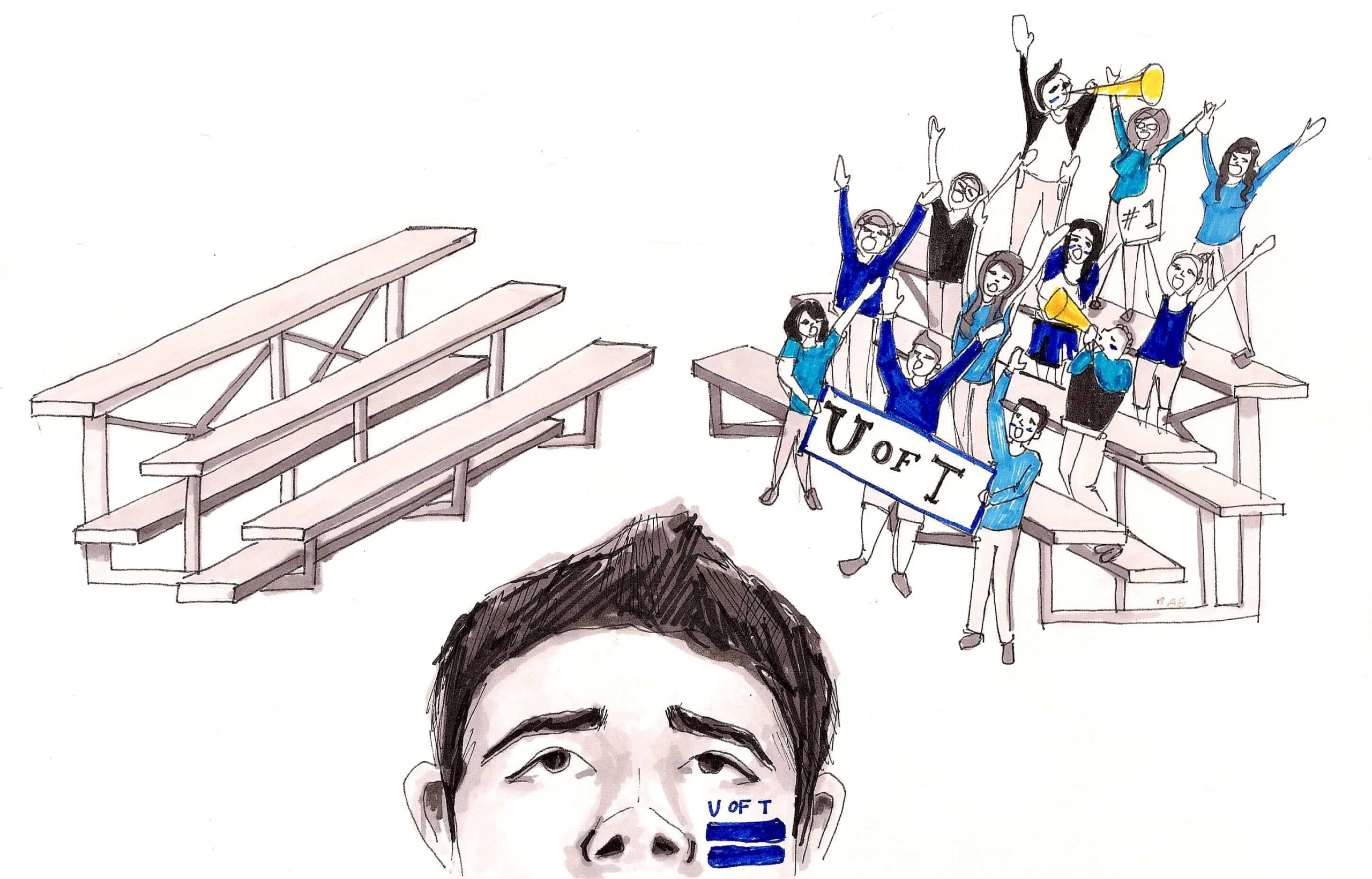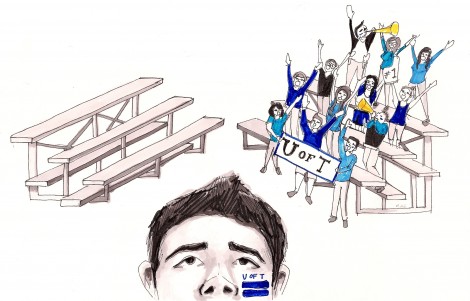The Varsity Blues, U of T’s student athletes, face a number of challenges in their quest to represent this university at intercollegiate level. It doesn’t help that often, there are very few people to support them as they compete.
“Despite the fact that it’s improved, I wouldn’t say that [attendance has] been satisfactory,” says Hannah Ehrhardt, a player on the Varsity Blues women’s rugby team. “And especially if you take parents out of the equation, we’d probably have very few fans.”
It’s not always the students’ fault that they’re not in attendance when the Varsity Blues are playing. “We don’t really have any games or matches in town,” points out women’s fencer Jessica Taylor. “Usually we’re not in Toronto, so the kind of support we get is mostly from other team members. There’s not a big spectatorship.”
If the team were to play on campus, though, Taylor would like to see some support from students. “It would be nice to have some people out there watching,” she says. “I don’t know how practical it is right now, unless we had the OUA Finals here — that would be really nice.”
The Blues are aware of some of the factors that lead to poor attendance at U of T sporting events. “I think a lot of it comes down to the fact that U of T is a commuter school and that it’s in Toronto; there’s so much to do in Toronto,” notes Ehrhardt.
The emphasis on academic achievement at U of T is an oft-cited explanation for students’ lack of interest in intercollegiate sport. Perhaps the person best able to address that reasoning is Shujon Mazumder, a Varsity Blues men’s wrestling competitor and a Top Eight Academic All-Canadian last season.
“It just seems that between classes, [students] really have a tight schedule,” admits Mazumer, an OISE student. “The student lifestyle is not really conducive to having time to watch tournaments.”
Not everyone agrees, though. “I don’t know whether that is why people don’t necessarily come out to games,” says Taylor, a PhD candidate in anthropology. “I would guess it would be maybe more to do with people’s relationship with the campus and the city.”
Taylor concedes that academics may play a role. “It could be related. It’s true that when I was an undergrad I never really went out to games — but I’m not a big watcher of sporting events anyway.”
The Blues don’t agree on whether or not the idea that U of T has unsuccessful sports teams plays a role either. Taylor knows that this perception is untrue — the women’s fencing team won the OUA championship last season. Still, that hasn’t gained them any more popularity. “I think people are more intrigued to find out we have a fencing team rather than coming into it with a preconceived notion of whether or not we’re good, because of U of T’s sporting reputation,” says Taylor.
“Nobody wants to admit they’re supporting a losing team — unless you’re a Leafs fan!” quips Ehrhardt. “Unless you’re a parent or you’ve been forced to go, I guess if you’re not cheering for the winning team, you’re not cheering at all.”
More than reputation, the Blues seem to think the lack of home support has to do with exposure. “The perception [that the Blues perform badly] probably does play into it, but a lot would have to do with knowing when games are, which is hard,” says Ehrhardt.
Mazumder thinks that students are particularly unaware of certain events and sports. “We only host one [wrestling] tournament at U of T — the U of T Open. Leading up to the tournament, I think we’re overshadowed by the other programs, like hockey and definitely swimming. So I don’t think we get enough promotion for wrestling in particular.”
While they’re aware of the reasons for the poor spectatorship at home games, the Blues athletes do wish they had some more support from their fellow students.
Ehrhardt concurs. “Spectators really do boost your performance — everyone’s motivated to impress other people.”



